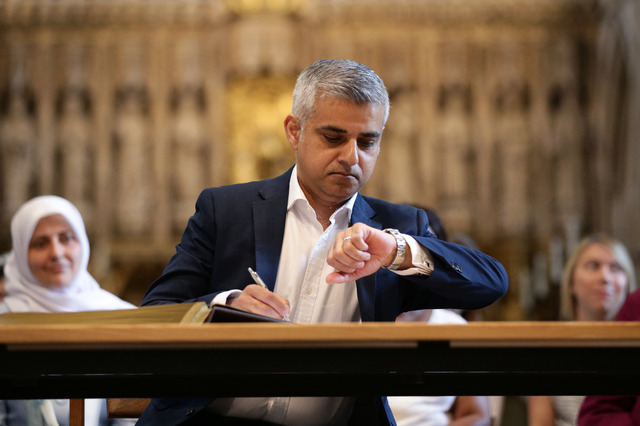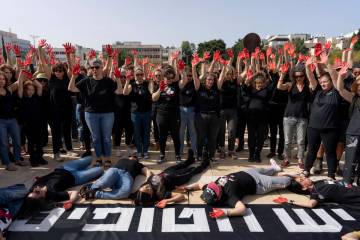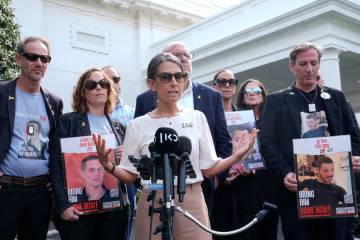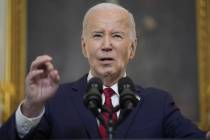Immigrants in Britain uncertain of future post Brexit
LONDON - Like millions of people around the world, Alejandro Majnoler was trying to make sense of a British exit from the European Union. He concluded that the ramifications of Britain’s shocking decision may be especially complicated for immigrants.
“Britain is saying, ‘We don’t want to go to the party anymore,’ ” said the 28-year-old Italian immigrant, who moved to the United Kingdom two years ago.
Majnoler was working at London’s Borough Market on Saturday, a food lover’s paradise that attracts grazers from around the globe.
“Will I need a visa? Will it cost more? Immigrants will be disadvantaged for sure,” he said, as he served customers raspberry licorice from Sweden and caramel twists from Denmark. “My friends in Italy are messaging me, ‘Come back, friend.’ “
IMMIGRATION A BREXIT ISSUE
Immigration was one of the key battlegrounds in the EU referendum, with those campaigning to leave arguing that it was the only way to slash migration. As a member of the EU, Britain has to allow free movement of people from 27 other member states.
Those campaigning for Brexit, or British exit from the EU, offered clear assurances that a new immigration system would not affect EU citizens already living in Britain: “There will be no change for EU citizens already lawfully resident in the UK,” the campaign noted on its website.
But the exact terms of the U.K.’s divorce from the EU will not be known for some time. And in the meantime, there is concern among the U.K.’s 7.5 million foreign-born residents about their future in a country where not all of them feel welcome.
That nervousness was palpable Saturday at the bustling Borough Market, nestled under railway lines where traders from around the world sell fruits and vegetables and artisan food.
“Immigrants are treated as scum, even though no one wants to do their jobs,” said Lucas, a 32-year-old from Poland running a coffee stall. (He did not want to give his surname but was happy to talk about the implications of the referendum with journalists and customers.) Returning change to a woman who bought a flat white coffee, he said, “Here are your English pounds. Tomorrow, we will have Welsh pounds, Scottish pounds and Irish euros.”
Lucas came to the U.K. shortly after the expansion of the EU in 2004, which brought many Eastern Europeans to the U.K. for better-paying jobs, but he is now considering moving to another European city. “I feel European and enjoy freedom of movement,” he said.
Poles are the biggest group of foreigners in the U.K., but Jakub Krupa, a Polish activist and journalist, said he does not expect a massive emigration of Poles returning home because of the vote.
But he said the “hate speech towards migrants that we’ve seen brewing for years” now seems to be acceptable.
On Saturday, London Mayor Sadiq Khan sought to reassure London’s Europeans - about 1 million call the British capital home - with a speech at a gay pride event in central London.
“You are welcome here,” he told a crowd of thousands, adding that he wanted London, which voted overwhelmingly to stay in the EU, at the negotiating tables with the EU.
That was good news for Chris Stewart, who runs a stall at Borough Market with products imported exclusively from Croatia, which became the EU’s newest member state in 2013.
Stewart talked enthusiastically about Croatia but was less upbeat about the future of the U.K. and Europe. “It’s the uncertainty that’s worrying. What about the pound? Prices? Tariffs? What about my staff?”
Many of the immigrants interviewed said they were worried about the ramifications of the xenophobic rhetoric that surfaced during the campaign.
“People are shaken to their core; they are wondering, ‘Is this place our home anymore?’ ” said Sayful Islam, a 23-year-old standing behind a stall with products from Mexico. He moved to the U.K. from Bangladesh when he was 9 and said that minority communities were now afraid that a British exit from the EU could see the rise of the far right.
“You meet people, especially the elder generation, they are blunt, and honest. I like that, but they say, ‘You’re not British because you have a different skin color,’ and you think, ‘What does one need to do to be British?’ “
“Brexit sends out a signal saying, ‘Nobody is welcome anymore,’ ” he said, pausing to serve a customer a bag of black beans. “It says, ‘It’s about us and our ways, and we’ve had enough, and we want everybody out.’ It’s a gloomy situation.”
While Brexit was the hot topic at the market, not everyone was downbeat.
“People who shout there will be tanks in the streets of Europe, it’s not going to be like that; that’s foolish talk,” said Lucas Roberto Giuliani, a 36-year-old Italian who sells sweets imported from the continent.
Guillermo Jose, a 39-year-old from Spain who was standing behind a large stack of fluffy meringues, said that most of the Europeans who moved here came because of the chance to earn more money.
“Seven years ago, there were no French here. Now, it’s full of French. They may not enjoy the heavy traffic, the weather, the three-hour commute… but they are here because of the pound.”
If the economy tanked, he said, EU citizens here would move on to one of the other 27 member states. “This island may not always be full.”






















